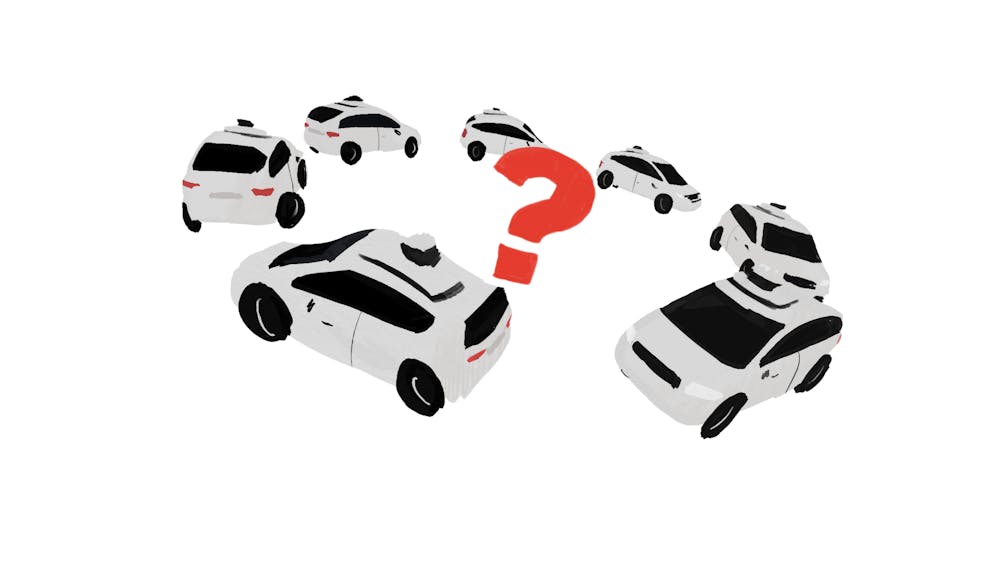
Content Warning: This article contains references to eating disorders.
“She’s everything. He’s just Ken.”
The tagline for Greta Gerwig’s highly anticipated live adaptation of “Barbie” (2023), set to be released on July 21, has recently set the internet ablaze with a slew of saturated, signature hot pink memes. On April 4, the second teaser trailer for the film was released in addition to graphics for each supporting character. “This Barbie has a Nobel Prize in physics,” one reads. “This Barbie is a lawyer,” proclaims another. Evidently, the individual Barbies vary by professional accomplishments and have inspired a string of copycat posts. Their male counterparts, however, lack the same depth, with no additional description beyond, “You guessed it. He’s a Ken.”
While the actual plot details for Gerwig’s fantasy project remain under tight wraps, this contrast in memes has already spurred several conversations concerning whether or not Barbie should be attributed the title of a feminist. It may be tempting to discredit the blue-eyed blonde as a delicate damsel in distress and the embodiment of impossibly thin beauty standards, but this is only an abridged half of the story. “Barbie” could also function as an upcoming fourth-wave feminist triumph and the social commentary that 2023 demands.
A complete understanding of Barbie’s convoluted legacy requires traveling back in time to her origin. Created in 1959 by Ruth Handler and purchased by Mattel in 1964, the doll was intended to close a gap in the toy market. At the time, vendors only sold baby dolls and consequently only allowed kids to imagine themselves as caregivers. Barbie was revolutionary in that she was the first mass-produced doll with adult features, allowing little girls to see themselves as more than future mothers. Shattering the “plastic ceiling,” the doll amassed over 150 careers on her resume, taking on an inspirational role for young audiences.
Barbie was also problematic. Her glossy golden locks and long, depilated tanned legs exemplified standards of ideal womanhood with Eurocentric characteristics that pandered to the patriarchy. The doll was quickly reduced to a sex symbol and a dumb blonde. Further, some campaigns were outright laughable; 1965’s Slumber Party Barbie, for example, actively encouraged starvation, offering “Don’t Eat!” as misguided advice and cementing the toy as synonymous with diet culture.
In a kaleidoscopic world soaked by the golden Malibu sun and sprinkled with glistening fuchsia glitter, nothing is black and white, and two things can certainly be true at once: Barbie is, historically, a very thin, very white emblem of girlhood; Barbie is also an archetype that emboldens us to reimagine the modern world as one where women can attain success in traditionally male-dominated fields. Barbie benefits from privilege and conventional beauty standards; Barbie also instills creativity and imagination in young girls, asserting that femininity and profound intelligence are not — and never were — mutually exclusive traits.
The political landscape has changed drastically since Barbie’s invention. For instance, fourth-wave feminism is a branch of feminism that originated in 2012, tackling subjects like sexual harassment, body shaming and rape culture in the age of social media. “Barbie” doesn’t have to address all of these issues, but the film appears to already be making powerful ripples with its subtext. The fact that Ken is allowed to merely exist in a state of blissful content while Barbie strives for professional perfection demonstrates the double standards with which we socialize our children. The film’s posters offer a witty quip at this observation.
Fresh off the successes of “Lady Bird” (2017) and “Little Women” (2019), Gerwig is now faced with the challenge of adapting Barbie for 2023 audiences. Although the director has previously received substantial criticism for her works centered around solely Caucasian coming-of-age stories, “Barbie” has the potential to rewrite the titular character’s complex past by fully embracing diverse skin tones, body types and religious backgrounds. Only time will tell if Gerwig has managed to implement an intersectional approach to the film; however, if the trailer is any indication, this Barbie is learning from her previous mistakes and highlighting actors from various backgrounds spanning multiple continents. So far, the cast includes Margot Robbie, Ryan Gosling, Issa Rae and Simu Liu as just a few names on the roster.
Today, the Mattel and Barbie brands are more inclusive than ever. Barbie sports everything from a hijab to a judicial robe and is available in an array of different body sizes. Her cartoon films emphasize themes of self-reliance, friendship and determination. The doll is also sold in a wheelchair and with a prosthetic leg, allowing room for more girls to feel represented. This is important: According to pediatric psychologists, having a doll that is representative of the child who plays with it can be key to developing self-worth and reflecting on the multiculturalism of the real world. As for the flick, it is time that a live-action movie represents Barbie as we know her: not a bimbo, but a figure that facilitates female empowerment.
“Barbie” will continue to rank No. 1 on my watchlist this summer. A saccharine, candy-colored land where women are able to win the presidency, pursue any career imaginable, choose how to express themselves and earn wages high enough to afford assets like the Dreamhouse is a world that girls deserve to see today. If that’s life in plastic, maybe it is fantastic. And in a post-Roe v. Wade country, it’s just the flamboyant, nostalgic and campy escape American audiences are craving.
If you or someone you know is struggling with disordered eating, you can reach Emory’s Counseling and Psychological Services at https://counseling.emory.edu/. You can reach the National Eating Disorders Association helpline at https://www.nationaleatingdisorders.org/ from 9 a.m. to 9 p.m. Monday through Thursday and from 9 a.m. to 5 p.m. on Fridays. You can text the hotline at (800) 931-2237 from 3 p.m. to 6 p.m. Monday through Thursday and 1 p.m. to 5 p.m. on Fridays. You can call the hotline at (800) 931-2237 from 11 a.m. to 9 p.m. Monday through Thursday and 11 a.m. to 5 p.m. on Fridays.
Safa Wahidi (24Ox) is from Sugar Hill, Georgia.

Safa Wahidi (she/her) (23Ox, 26C) is from Sugar Hill, Georgia, and is double-majoring in political science and creative writing. Outside of the Wheel, Safa has worked at Spoon University, Forsyth County News and CNN International. Previously, Safa’s pop culture column “Wahidi’s What’s Happening” won first place nationally at the Society of Professional Journalists Mark of Excellence Awards. In her free time, you can find Safa exploring nearby bookstores and brunch spots.







